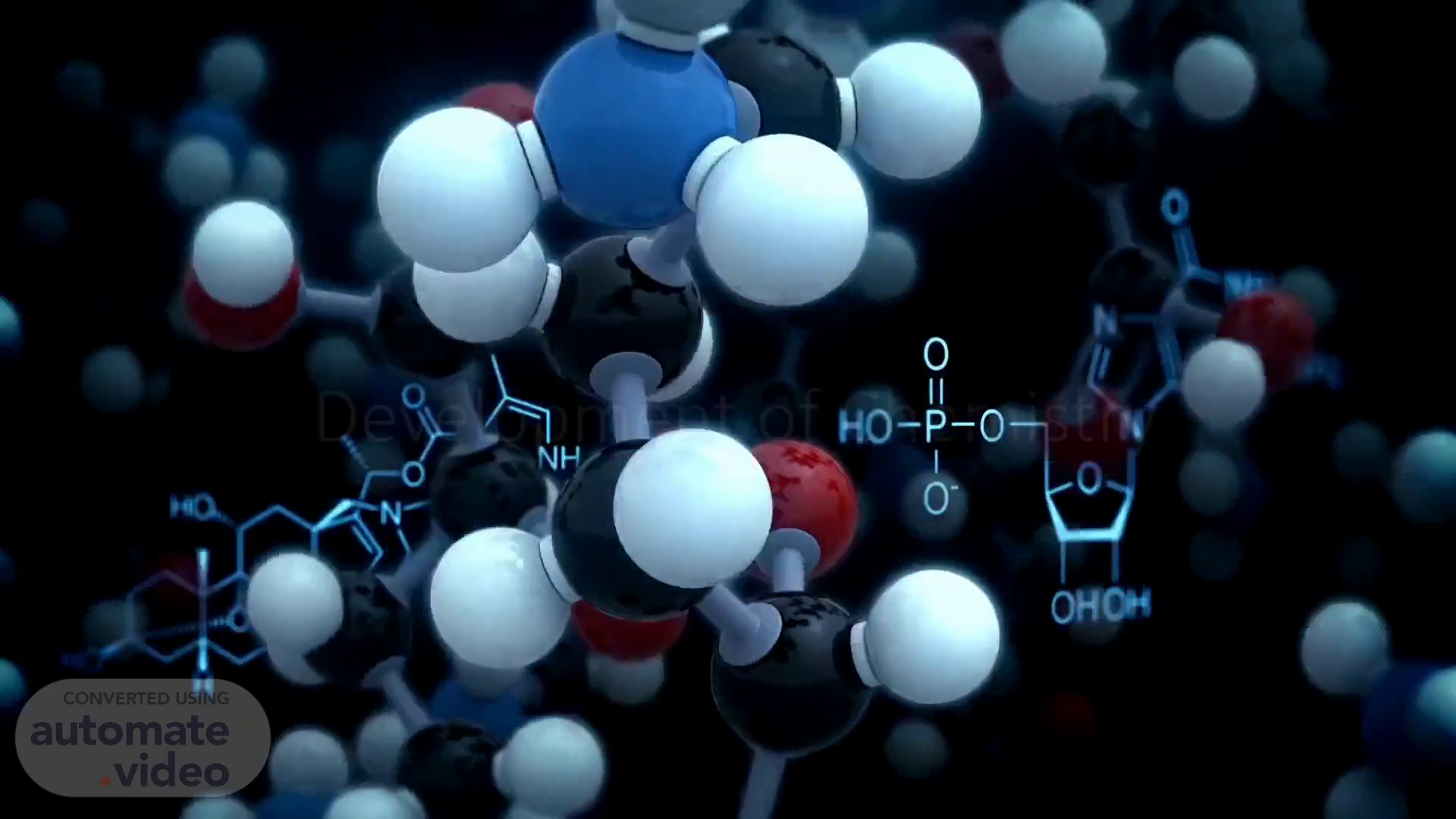
Development of Chemistry
Scene 1 (0s)
Chemical Compounds. [Audio] Good morning/afternoon everyone. Today we are going to discuss the evolution of Chemistry from its very beginnings to the present day. We will be highlighting the contributions of Indian culture to the field. Let's get started and explore the amazing journey of Chemistry!.
Scene 2 (20s)
[Audio] Chemistry is a fascinating branch of science that delves into the composition, properties, structure and reactions of matter. Over the centuries, scientists from all regions have come together to cultivate comprehension and drive advancement of chemistry. From the ancient Egyptians and Greeks to contemporary research facilities, chemistry has offered solutions to many of the unpredictable phenomena in our environment. Chemistry encompasses knowledge of the atomic structure and development of medicines which have the power to save lives, showings its strong connection to our lives..
Scene 3 (58s)
[Audio] Chemistry has existed for centuries, though its development has progressed substantially over time. Ancient India referred to chemistry as Rasayan Shastra or Ras Kriya, and it was applied to fields like metallurgy, medicine, glass production, and dye-making. Archaeological evidence of its use is found in sites like Mohenjodaro and Harappa, where pottery and metallurgy were major activities. Examining these ancient discoveries, we can appreciate the resources that have been used for generations and the evolution of chemistry in history..
Scene 4 (1m 35s)
[Audio] Alchemy and latrochemistry began to emerge in the 1300s to 1600s CE, having a great influence on the history of chemistry. Chinese and Indian cultures provided much of the theoretical and practical basis, with alchemy in particular making important contributions in the search for the philosopher's stone and elixir of life, resulting in many chemical discoveries..
Scene 5 (2m 0s)
[Audio] 18th-century Europe saw a major milestone in scientific progress with the development of modern Chemistry. Drawing on alchemical traditions, it laid the foundations for comprehending complicated chemical reactions and structures. During the mid-19th century, the arrival of European scientists to India was a critical event in the annals of Chemistry. It permitted the infiltration of Western medicinal practices to India, which caused the downfall of alchemy and a subsequent rise of modern pharmaceuticals..
Scene 6 (2m 35s)
[Audio] Chemistry has a long and varied history in India. Ancient Indian texts, like Charaka Samhita and Sushruta Samhita, show an extensive knowledge of chemical processes, including reducing particle size and preparing various compounds. Notable Indian scientists like Nagaijuna and Chakrapani have made remarkable advances in chemistry, like creating mercury compounds and inventing soap. Traditional Indian practices, such as Ayurveda, are still largely embedded in chemical methods and continue to shape contemporary science..
Scene 7 (3m 13s)
[Audio] Chemistry has seen a remarkable evolution over time, from its early days of alchemical experimentation to its current advanced form. Through contributions from numerous different cultures, especially from India, chemistry has been transformed into a powerful tool to analyze, manipulate, and improve the world we live in. This remarkable progress is a testament to what can be achieved when people are devoted to furthering our knowledge and exploring the limits of research..
Scene 8 (3m 44s)
[Audio] We have seen how Chemistry has improved our lives in many aspects, from the physical world to the social, cultural, and economic. Our reference for this information was the NCERT. The last slide of our presentation focuses on the references used. In conclusion, I would like to thank you for your attention and I hope that this presentation was insightful..